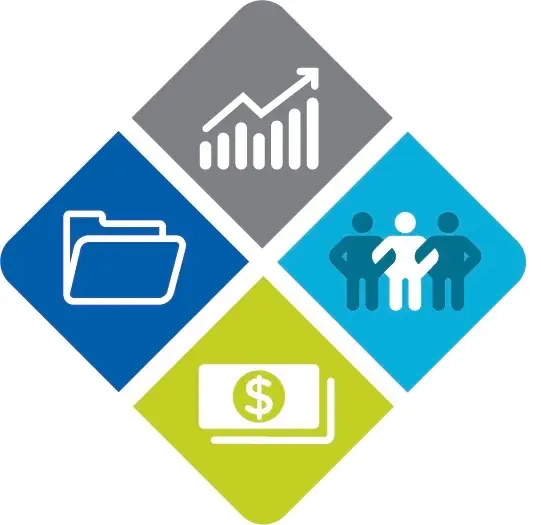The International Coaching Federation (ICF) has just released the new ICF competencies, the first major update since 2019. This update reflects a global job analysis of nearly 3,000 coaches worldwide and captures how the profession has evolved in practice, ethics, and scope.
While no new “main” competencies were added, the 2025 update introduces five new sub-competencies, revises eleven existing ones, and expands definitions to reflect the realities of modern coaching. A new glossary has also been added to ensure clarity and consistent understanding across the profession.
For coaches — whether you’re working with individuals, teams, or organizations — this is not just a rewording. These changes highlight deeper expectations: continuous learning, well-being, supervision, technology awareness, and heightened self-reflection.
At Systems Business Coach®, we welcome these updates. Our programs have always intentionally aligned with the ICF core competencies. Whether supporting small business owners in leadership, finance, operations, team building, or marketing, our coach training helps you apply a coach approach to every aspect of business concern.
And now, with our ICF Level 2 PCC accreditation, we are excited to prepare the next generation of coaches to not only meet but exceed these updated standards.
Let’s walk through the new ICF core competencies one by one — exploring what’s changed and what it means for your coaching practice.

Competency 1: Demonstrates Ethical Practice
2019 Definition
Understands and consistently applies coaching ethics and standards of coaching.
2025 Definition
No change to the main definition, but updates strengthen language around maintaining distinctions between coaching and other professions, confidentiality, and use of respectful language.
What Changed
- More explicit emphasis on ICF Core Values.
- Confidentiality remains central, aligned with stakeholder agreements and laws.
- Continued clarity about when to refer a client to other professionals.
What This Means for Coaches
Ethics remain the anchor of our profession. Coaches are called to uphold integrity, honesty, and respect — and to be clear about the boundaries between coaching, consulting, and therapy.
At Systems Business Coach®, this competency is embedded in everything we teach. When working with small business owners, ethical practice often includes clarifying roles: Are you coaching them toward their own solutions, or slipping into consulting? Our curriculum helps coaches stay disciplined while still providing high-value support.

Competency 2: Embodies a Coaching Mindset
2019 Definition
Develops and maintains a mindset that is open, curious, flexible, and client-centered.
2025 Definition
Engages in ongoing personal and professional learning and development as a coach. Works with coaching supervisors or mentor coaches as needed. Develops and maintains a mindset that is open, curious, flexible, and client-centered.
What Changed
- Professional development is now an explicit requirement.
- Supervision and mentor coaching are formally named.
- Coaches must stay current with best practices and technology.
- Well-being expanded to include emotional, mental, and physical self-care.
- Two new sub-competencies:
- Nurturing openness and curiosity in self, client, and process.
- Remaining aware of how one’s thoughts and behaviours influence the client.
What This Means for Coaches
Coaching mindset is no longer only about showing up prepared; it is about lifelong learning, reflection, and care. Coaches are expected to invest in supervision, maintain well-being, and stay conscious of their impact.
This resonates deeply with our approach. At Systems Business Coach®, we don’t just teach skills — we shape reflective, resilient professionals who can sustain their practice while supporting clients in high-stakes situations like business growth, hiring challenges, or financial pressures.

Competency 3: Establishes and Maintains Agreements
2019 Definition
Partners with the client and stakeholders to create clear agreements about the coaching relationship, process, plans, and goals.
2025 Definition
Same overall definition, but with important clarifications.
What Changed
- Coaches must now describe their coaching philosophy to potential clients.
- Explicit commitment to goals is part of the agreement.
- Agreements are revisited as needed to ensure alignment.
- Closure language updated to emphasize respect and client honouring.
What This Means for Coaches
Clear agreements build trust. This competency reinforces the idea that coaching is a partnership — with shared responsibility, defined boundaries, and a mutual understanding of goals.
In small business coaching, this is critical. Owners need clarity on the difference between coaching, consulting, and advising. Our training shows coaches how to establish agreements that respect the owner’s autonomy while providing structure for progress in areas like operations, finance, or team management.

Competency 4: Cultivates Trust and Safety
2019 & 2025 Definitions
Partners with the client to create a safe, supportive environment that allows the client to share freely. Maintains a relationship of mutual respect and trust.
What Changed
Language remains consistent, but the emphasis is on:
- Respecting identity, values, and experiences.
- Demonstrating empathy, openness, and transparency.
- Using vulnerability appropriately to build trust.
What This Means for Coaches
Trust and safety are the soil where transformation grows. Coaches must adapt their style to each client’s unique identity and context.
When coaching small business owners, this might mean respecting their lived reality — whether they’re a farmer, doctor, or baker — and adapting language and methods to meet them where they are. Our programs equip coaches with the cultural sensitivity and presence required to build this trust.

Competency 5: Maintains Presence
2019 Definition
Is fully conscious and present with the client, employing a style that is open, flexible, grounded, and confident.
2025 Definition
Same main definition, but with expanded expectations.
What Changed
- Awareness of what is emerging for both coach and client.
- Explicit focus on managing emotions in real time.
- Confidence in handling strong client emotions.
- Comfort with uncertainty and “not knowing.”
- Use of silence, pause, and reflection as tools.
What This Means for Coaches
Presence is about staying grounded even when emotions run high or clarity is absent. Coaches are expected to hold space for silence, navigate uncertainty, and remain confident.
For small business coaching, this is essential. Owners often face stress, fear, or overwhelm. A coach trained to maintain presence can calmly support decision-making in the midst of uncertainty — whether it’s a financial crisis, staffing issue, or strategic pivot.

Competency 6: Listens Actively
2019 & 2025 Definitions
Focuses on what the client is and is not saying to fully understand what is being communicated in the context of the client systems and to support client self-expression.
What Changed
- More emphasis on integrating tone, language, and body language.
- Attention to patterns across sessions to spot deeper themes.
- Clarity in reflecting back without distortion.
What This Means for Coaches
Listening is more than waiting to speak. Coaches are now expected to listen across time — noticing patterns and themes, not just single-session content.
In business coaching, this means spotting recurring financial struggles, team issues, or leadership blind spots. Our training equips coaches to listen not just to words but to trends that reveal systemic issues.

Competency 7: Evokes Awareness
2019 & 2025 Definitions
Facilitates client insight and learning by using tools and techniques such as powerful questioning, silence, metaphor, or analogy.
What Changed
- Greater focus on helping clients explore beyond current thinking.
- Adjusting the approach to meet client needs.
- Supporting reframing of perspectives.
- Sharing observations and knowledge without attachment.
What This Means for Coaches
This competency is about creating breakthroughs — not by giving advice, but by asking questions, using silence, and offering reflections that spark new insight.
In all our Small Business Coach Training programs, we emphasize this skill as central to the coach approach. Instead of telling business owners what to do, we guide them to discover their own solutions — which creates ownership, accountability, and sustainable change.

Competency 8: Facilitates Client Growth
2019 Definition
Partners with the client to transform learning and insight into action. Promotes client autonomy in the coaching process.
2025 Definition
Same overall definition, but expanded to emphasize sustaining progress across the coaching engagement.
What Changed
- Integration of learning throughout the coaching relationship.
- Explicit closing of sessions.
- Celebrating progress and successes.
What This Means for Coaches
Growth doesn’t end with insight — it’s about action, accountability, and celebration. Coaches are called to help clients embed new awareness into behaviours, and to sustain change over time.
In business coaching, this might mean helping a client not only design a hiring system but also celebrate their first successful hire. Our programs integrate celebration and accountability as part of the process of building sustainable businesses.

Final Thoughts: Why These Updates Matter
The new ICF core competencies reflect a coaching profession that is maturing, expanding, and integrating new realities — from supervision and technology to well-being and cultural awareness.
At Systems Business Coach®, we are proud that our curriculum already embodies these updates. We prepare coaches to:
- Apply a coach approach to the real concerns of small business owners: leadership, finance, operations, team building, and marketing.
- Work confidently with individuals and teams across industries and contexts.
- Earn ICF Level 2 PCC accreditation with a program that integrates the updated competencies into every module.
As the coaching profession steps into this new chapter, the message is clear: being a coach is not just about techniques. It is about who you are becoming — a reflective, ethical, growth-oriented professional who partners with clients to create lasting impact.









